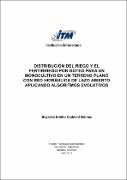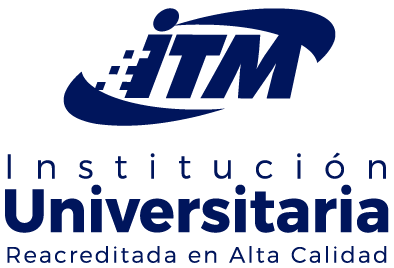Distribución del riego y el fertirriego por goteo para un monocultivo en un terreno plano con red hidráulica de lazo abierto aplicando algoritmos evolutivos

QRCode
Compartilhar
Data
2016Diretor(es)
Editor
Instituto Tecnológico MetropolitanoCitação
Metadata
Mostrar registro completoDocumentos PDF
Resumo
Este trabajo tiene como objetivo proponer una solución al problema de la distribución más adecuada del riego y el fertirriego programado, para un cultivo con riego por goteo automatizado con red hidráulica de lazo abierto y plántulas de diferentes estados fenológicos. La metodología construida para la solución es la siguiente: se caracterizó un cultivo típico de manera numérica y se representó matemáticamente mediante un grafo acíclico dirigido en forma matricial. Posteriormente se diseñó e implementó una función de evaluación para cuantificar el error y el desperdicio ocasionado para distribuciones dadas de la lámina y se desarrolló un proceso de optimización para encontrar la mejor distribución mediante herramientas meta-heurísticas. La estrategia se validó con tres herramientas diferentes: algoritmos genéticos, optimización por enjambres de partículas y búsqueda cuckoo. Los resultados indican que la metodología propuesta permite encontrar la distribución más adecuada de una lámina programada de riego y fertirriego con un error y desperdicio mínimo, alcanzando soluciones consistentes con las diferentes herramientas meta-heurísticas, lo que prueba su robustez. Este aporte es importante porque permite aumentar la uniformidad del riego-fertirriego, optimizar la logística de la fertirrigación e implementar esta técnica a los programadores/controladores de riego
Abstract
This work proposes a solution to the problem of finding the most suitable distribution of programmed irrigation and fertigation, for an automated drip irrigation crop with open loop hydraulic network and seedlings of different phenological stages. The methodology used for the solution process is the following: a typical crop was numerically characterized and mathematically modeled by a directed acyclic graph in matrix form. Then, an evaluation function for quantifying the error and waste caused by given distributions was developed and implemented, and an optimization process based on meta-heuristic tools was developed in order to find the optimal distribution. The strategy was validated using three meta-heuristic tools: Genetic Algorithms, Particle Swarm Optimization and Cuckoo Search. The results indicate that this methodology allows to find the most suitable solution of a programmed irrigation and fertigation distribution with minimal waste and failure, reaching comparable solutions with the three meta-heuristics. This results allow to increase the uniformity of fertigation, optimize the logistics of fertigation and to implement this strategy on irrigation computers/controllers


